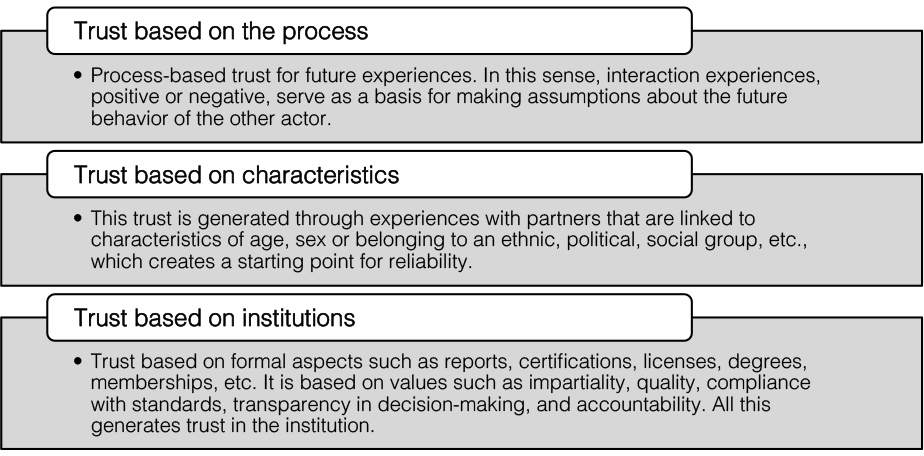

4. Trust among partners
Trust is the fuel of cooperation arrangements, and can only be obtained from actors own experiences of cooperation and from the assumption about the prediction of the other actor's behavior.
As a resource, trust helps cooperation systems to be more efficient and reduce their transaction costs, reduce control and coordination efforts, save negotiation time, facilitate the open exchange of information and the acquisition of knowledge, replaces the fixation written contracts and the need to formalize the rules. However, without a minimum of trust, cooperation does not work.
 Lack of trust has several reasons:
Lack of trust has several reasons:
Types of trust in cooperative relationships:


Although trust can be based on formal aspects, it must be built fostering communication and closeness between the actors through social relations, it can arise unintentionally and then encourage and strengthen common action.
A permanent and reliable relationship between the actors of the cooperation system is a stabilizing factor in the relations of the cooperation system.
In this sense, values that support the creation, stabilization and reproduction of trust relationships:
SELF-ASSESMENT
This questionnaire will allow you to evaluate the competences acquired by studying the module.